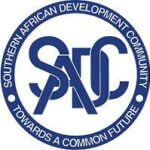The Southern African Development Community (SADC) Secretariat is the body that facilitates the implementation of SADC programmes and activities to meet its objectives and overall goal of poverty eradication and regional integration.
Vision
A reputable, efficient and responsive enabler of Regional Integration and Sustainable Development.
Mission
Provide strategic expertise and co-ordinate the harmonisation of policies and strategies to accelerate Regional Integration and Sustainable Development.
Mandate
The Mandate of the SADC Secretariat, as outlined in the SADC Treaty, is to provide the following:
- Strategic planning and management of the programme of SADC
- Implementation of the decisions of the Summit and council
- Organisation and management of SADC Meetings
- Financial and general administration
- Representation and promotion of SADC
- Promotion and harmonisation of policies and strategies of Member States
Values
The SADC Secretariat subscribes to the following values:
- Quality service and competency
- Professionalism
- Integrity
- Commitment and passion
- Team spirit
- Mutual respect and trust
- Courtesy
- Equality of opportunity
- Transparency and frankness
The Southern African Development Community (SADC) Common Agenda refers to a set of key principles and values that guide the Regional Integration agenda.
The SADC Common Agenda is spelled out in Article 5 of the Treaty (as amended, 2009), as well as in the Review of Operations of SADC Institutions and consists of the policies and strategies of the organisation.
SADC Policies
- Promote sustainable and equitable economic growth and socio-economic development that will ensure poverty alleviation with the ultimate objective of its eradication, enhance the standard and quality of life of the people of Southern Africa and support the socially disadvantaged through regional integration.
- Promote common political values, systems and other shared values which are transmitted through institutions that are democratic, legitimate, and effective.
- Consolidate, defend and maintain democracy, peace, security and stability.
- Promote self-sustaining development on the basis of collective self-reliance, and the interdependence of Member States.
- Achieve complementarity between national and regional strategies and programmes.
- Promote and maximise productive employment and utilisation of the resources of the Region.
- Achieve sustainable utilisation of natural resources and effective protection of the environment.
- Strengthen and consolidate the long-standing historical, social and cultural affinities and links among the people of the Region.
- Combat HIV and AIDS and other deadly or communicable diseases.
- Ensure that poverty eradication is addressed in all SADC activities and programmes.
- Mainstream gender in the process of community building.
SADC Strategies
- Harmonise political and socio-economic policies and plans of Member States.
- Encourage the peoples of the Region and their institutions to take initiatives to develop economic, social and cultural ties across the region, and to participate fully in the implementation of the programmes and projects of SADC.
- Create appropriate institutions and mechanisms for the mobilisation of requisite resources for the implementation of programmes and operations of SADC and its institutions.
- Develop policies aimed at the progressive elimination of obstacles to the free movement of capital and labour, goods and services, and of the peoples of the region generally, among Member States.
- Promote the development, transfer and mastery of technology.
- Improve economic management and performance through regional cooperation.
- Promote the coordination and harmonisation of the international relations of Member States.
- Secure international understanding, cooperation and support, and mobilise the inflow of public and private resources into the region



